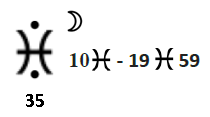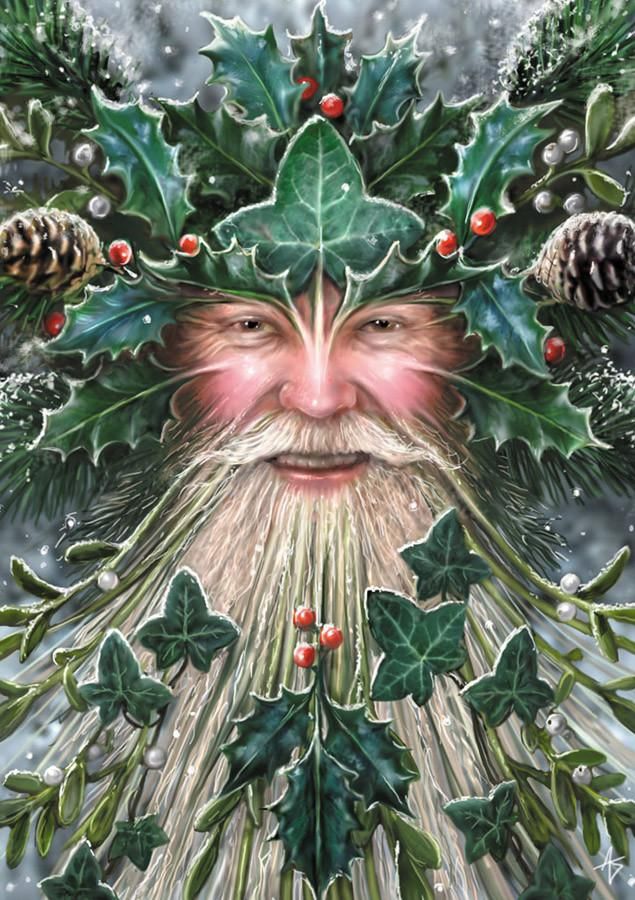ARIANRHOD

Arianrhod, celestial goddess of magic, reincarnation, time, and fate, is a major deity in the Welsh pantheon, and is often described as the most powerful child of Dôn (Mother Goddess equivalent to the Irish Danu). Her name translates as “silver wheel” which is variously interpreted as a reference to the moon, the wheel of time, the wheel of the year, the semi-circle of stars known as Corona Borealis (Northern Crown), and Polaris (the north star). However, no matter which interpretation you look at – or if you take them all together – it is clear that cycles and time are a major part of Arianrhod’s domain. She is a cosmic goddess, sometimes thought to be the force of karma bringing balance to the universe. She is both the wheel and its spinning but, as she stands at the centre, Arianrhod is not subject to it herself.
Some stories tell us Arianrhod can shapeshift into an owl, a night creature associated with wisdom and seeing in the dark. In this form, Arianrhod is said to be able to look into the depths of the soul, which is how she decides the new destiny that she weaves for the soul’s reincarnation.
Her cosmic home is Caer Sidi (“revolving castle”), which is generally interpreted to be the circumpolar stars – those stars and constellations that revolve around Polaris – that mark the changing seasons and cycles. Arianrhod, herself, sits at the centre of her castle, just as Polaris sits at the centre of the constellations. Caer Sidi stands in the Otherworld (sometimes called Emania, meaning “Moonland”, other times referred to as Annwn) and it is to Caer Sidi that the souls of the dead are brought to await reincarnation. Arianrhod gathers these souls and carries them on her boat – Oar Wheel – to the Otherworld where she weaves their fate, spins the wheel, and opens the door to reincarnation.
Arianrhod is sometimes erroneously described as a mother goddess. She does give birth to two sons but she most definitely does not fulfill the archetype of the mother. Arianrhod is a virgin goddess in the old sense, beholden to no one and free to explore her sexuality with whomever she chooses, which was apparently often mermen. However, in the following myth we see the modern Christian interpretation of virgin taking prominence.
According to the Mabinogian, Math, a magician and king, was required to keep his feet in the lap of a virgin while he was not at war. This virgin (symbolic of the land and the goddess) represented his right to rule as well the root of his power. However, when he goes off to war, the virgin is raped so Math needs a new footholder. Gwydion, Arianrhod’s brother, offers Arianrhod as a replacement. Math accepts as long as Arianrhod passes a test of her virginity. Of course for Arianrhod being a virgin meant simply “whole unto herself”, so she readily agrees to the king’s test, which requires Arianrhod jump over his wand. (As an aside, I find this a rather suggestive test of virginity).
However, when Arianrhod leaps the wand she instantly gives birth to two sons. Dylan (likely the product of a tryst with one of those aforementioned mermen) was unnoticed and escaped to the sea, but the other son, Lleu (sometimes described as the product of Gwydion’s secret love of his sister), was adopted and raised by Gwydion himself.
Of course, Arianrhod is furious about being publicly shamed (which seemed to be the goal of Math and Gwydion) so she lays a curse on her son that he would never have a name, never bear arms, and never have a human wife. However, over the course of the child’s life Gwydion manages to trick Arianrhod into giving him both a name and arms, but the wife Lleu gets is Blodeuwedd, a maiden conjured out of flowers by Gwydion and Math. Blodeuwedd ends up arranging Lleu’s death, is then turned into an owl (another symbol of Arianrhod), and Lleu is brought back to life to become king (sun god).
By the time the Mabinogian was written, Christianity was having quite an influence on pagan mythologies. Instead of being recognized as a powerful and authoritative goddess who brought forth the sun king, Arianrhod is turned into a shamed female whose vengeance is outwitted by the males around her. They took away her power to bestow fate and turned her independence against her.
Nevertheless, for those who seek her, Arianrhod remains a primordial goddess of feminine power, associated with the sea and stars, understood collectively as the cosmic ocean. She is a goddess of magic, reincarnation, destiny, cycles, and time. Look to Caer Sidi and see her powers woven in the stars.
